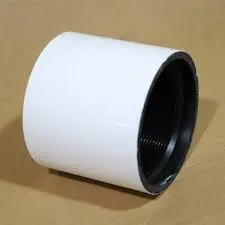- Afrikaans
- Albanian
- Amharic
- Arabic
- Armenian
- Azerbaijani
- Basque
- Belarusian
- Bengali
- Bosnian
- Bulgarian
- Catalan
- Cebuano
- Corsican
- Croatian
- Czech
- Danish
- Dutch
- English
- Esperanto
- Estonian
- Finnish
- French
- Frisian
- Galician
- Georgian
- German
- Greek
- Gujarati
- Haitian Creole
- hausa
- hawaiian
- Hebrew
- Hindi
- Miao
- Hungarian
- Icelandic
- igbo
- Indonesian
- irish
- Italian
- Japanese
- Javanese
- Kannada
- kazakh
- Khmer
- Rwandese
- Korean
- Kurdish
- Kyrgyz
- Lao
- Latin
- Latvian
- Lithuanian
- Luxembourgish
- Macedonian
- Malgashi
- Malay
- Malayalam
- Maltese
- Maori
- Marathi
- Mongolian
- Myanmar
- Nepali
- Norwegian
- Norwegian
- Occitan
- Pashto
- Persian
- Polish
- Portuguese
- Punjabi
- Romanian
- Russian
- Samoan
- Scottish Gaelic
- Serbian
- Sesotho
- Shona
- Sindhi
- Sinhala
- Slovak
- Slovenian
- Somali
- Spanish
- Sundanese
- Swahili
- Swedish
- Tagalog
- Tajik
- Tamil
- Tatar
- Telugu
- Thai
- Turkish
- Turkmen
- Ukrainian
- Urdu
- Uighur
- Uzbek
- Vietnamese
- Welsh
- Bantu
- Yiddish
- Yoruba
- Zulu
well casing extension coupling
Understanding Well Casing Extension Couplings
In the oil and gas industry, efficient drilling and extraction processes are crucial for maximizing resource recovery while minimizing costs. One essential component in this process is the casing, which serves as a protective tube installed in the wellbore. The integrity of the well casing system is paramount, and extensions using specialized couplings play a significant role in ensuring the structural integrity and longevity of the well.
What is Well Casing?
Well casing is the steel pipe that lines the borehole after it has been drilled. Its primary purposes include
1. Preventing Well Collapse Casing provides structural support to the wellbore, preventing it from collapsing under pressure. 2. Protecting Groundwater It isolates the groundwater from contaminating fluids that may be present during extraction. 3. Facilitating Production Casing allows for the installation of production systems that efficiently bring oil and gas to the surface.
The installation of well casing is performed in stages, and as drilling progresses, longer sections of casing may need to be added to achieve total depth. This is where well casing extension couplings come into play.
What are Well Casing Extension Couplings?
Well casing extension couplings are specialized connectors that allow multiple sections of casing to be joined together. These couplings are designed to handle the high stresses and variations in pressure that are typical in drilling operations. Their design is critical to maintaining the overall strength and reliability of the casing assembly.
These couplings typically include
- Threaded Connections Standard industry threads allow for a secure and tight fit between casing segments. - Welded Joints For some applications, welded couplings provide increased strength and resistance to leakage. - Diverse Materials Depending on the well environment, couplings can be made from high-strength steel or corrosion-resistant alloys.
Importance of Well Casing Extension Couplings
well casing extension coupling

1. Structural Integrity Properly designed couplings ensure that the casing remains stable under the various pressures encountered during drilling. This minimizes the risk of failure that could result in costly remedial operations or environmental hazards.
2. Ease of Installation Extension couplings streamline the casing installation process. Their design allows for rapid and efficient connection of casing sections, saving both time and labor costs during drilling operations.
3. Versatility Different well conditions require different coupling designs. For example, wells that expect extreme pressures may use high-strength couplings, while those in corrosive environments may need specific coatings.
4. Improved Safety By integrating reliable couplings, operators can significantly reduce the risk of incidents associated with casing failures, such as blowouts or collapses. This translates to enhanced safety for both personnel and equipment.
5. Cost Efficiency While the initial investment in quality couplings may seem higher, the long-term savings from reduced maintenance and failure incidents justify this expense. Moreover, extending the life of the casing means fewer replacements and interruptions during extraction.
Looking Ahead Innovations in Coupling Technology
The ongoing evolution of well casing extension coupling technologies is exciting. With advancements in materials science and engineering design, newer couplings are being developed that offer enhanced performance in extreme environments. Innovations such as smart couplings equipped with sensors can provide real-time data on strain, temperature, and pressure, allowing for proactive measures to be taken before a failure occurs.
Moreover, the push for sustainability in the oil and gas sector means that the design of casings and couplings is increasingly factoring in environmental impacts. This includes using materials that are less harmful to the environment and improving the recyclability of components after their operational life.
Conclusion
Well casing extension couplings are critical to the efficiency, safety, and success of drilling operations in the oil and gas industry. By ensuring structural integrity and facilitating ease of use, these couplings not only protect valuable resources but also streamline operations and foster a safer work environment. As technology continues to advance, the future of well casing systems will likely see even more innovations that enhance their reliability and sustainability, further contributing to the industry's push toward more responsible resource management.
-
Tubing Pup Joints: Essential Components for Oil and Gas OperationsNewsJul.10,2025
-
Pup Joints: Essential Components for Reliable Drilling OperationsNewsJul.10,2025
-
Pipe Couplings: Connecting Your World EfficientlyNewsJul.10,2025
-
Mastering Oilfield Operations with Quality Tubing and CasingNewsJul.10,2025
-
High-Quality Casing Couplings for Every NeedNewsJul.10,2025
-
Boost Your Drilling Efficiency with Premium Crossover Tools & Seating NipplesNewsJul.10,2025







